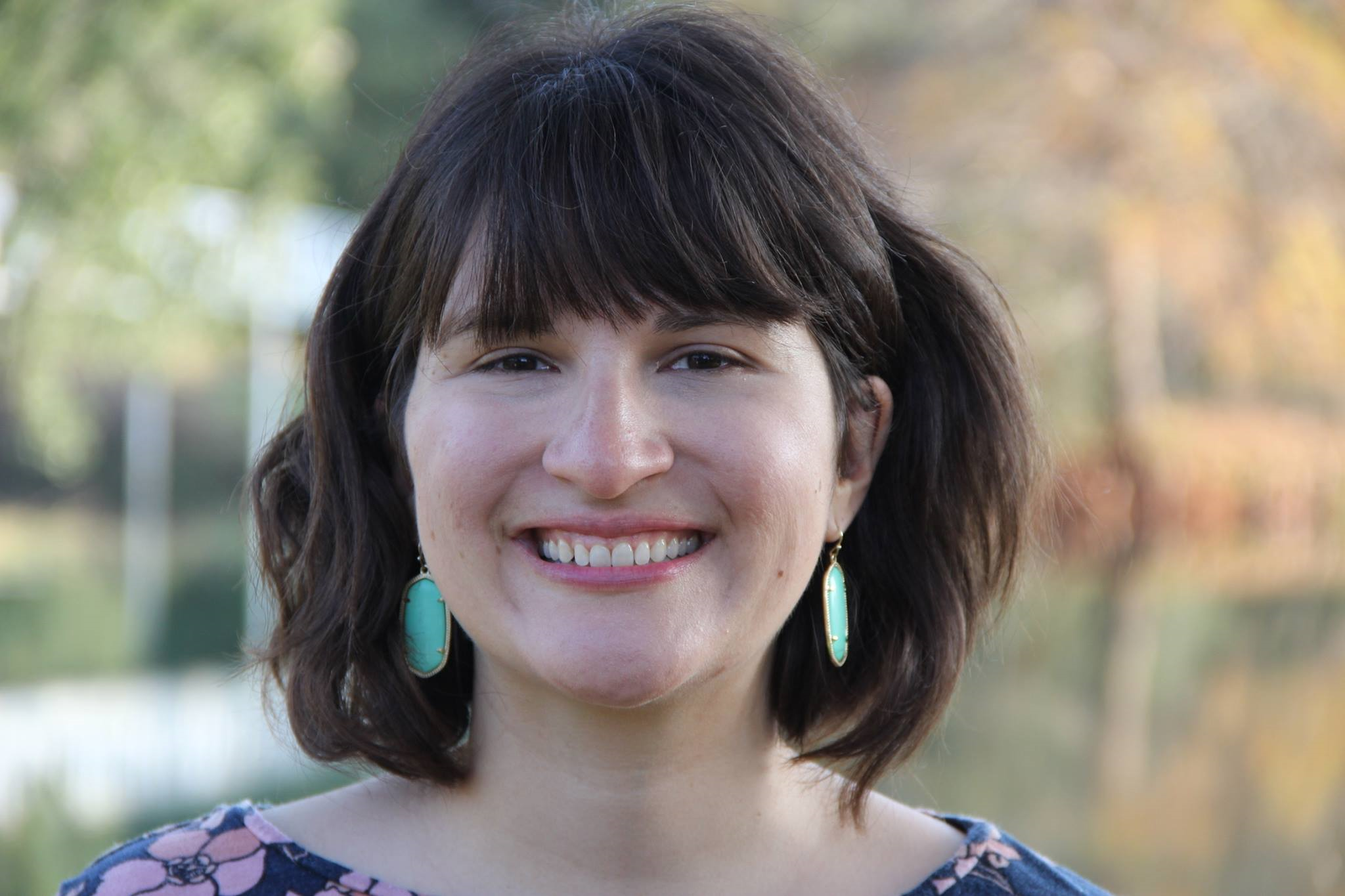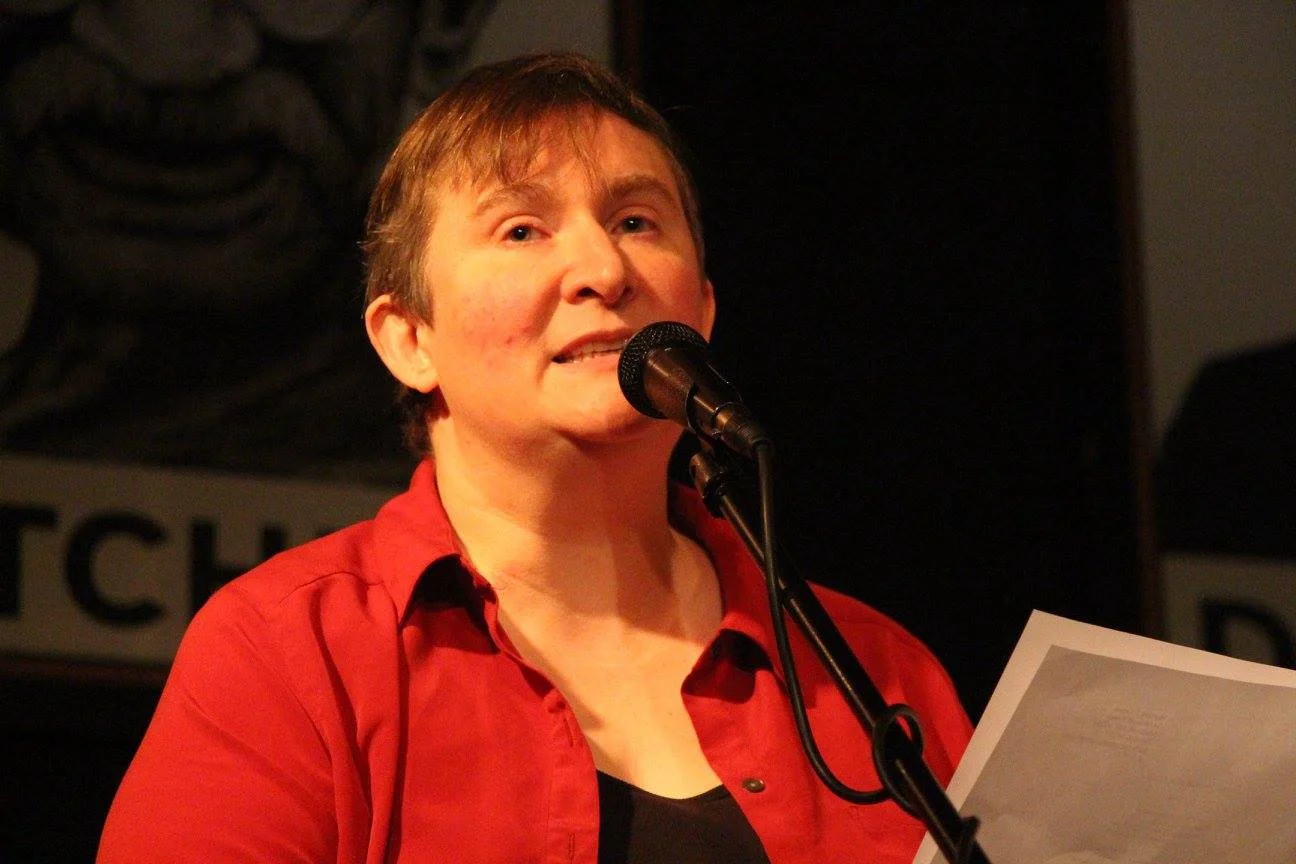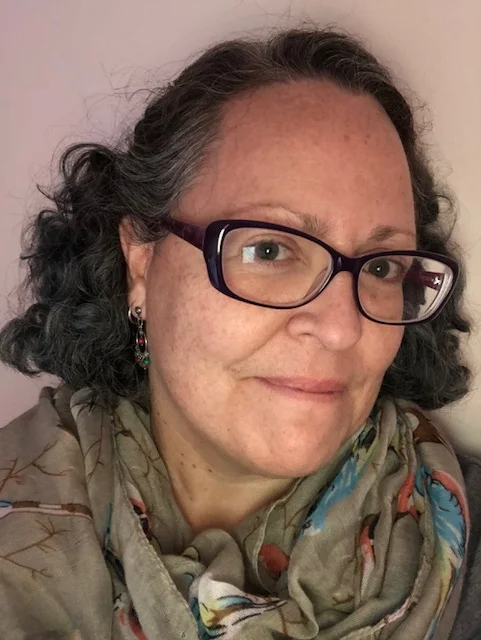The Imaginary Age
Twin sister, in those days, our sleep traveled
down to the center of the earth. It cleaned our insides,
a busy light, each day a new four-foot someone.
Bold dolls endured repeated orphaning, adventures,
in the hard play of our summer afternoons.
Years later, I learned about the concept of flow,
Csikszentmihalyi’s idea that the self gets lost
wonderfully in an act of creation.
I’d known it killing off wispy-haired relatives,
no twin girls here, just troll dolls in overalls
circling a bedroom in sudden liberation.
Hot soup with the slippery chicken: I’m still in it.
Are others beyond the wordless? Twenty-six,
I puppy-jump between my father and his girlfriend,
be my family, be my family, how dare you be my family!
In some other life, I’d be a mother now,
smug with the ability to love a husband.
So my mother died. I suppose that event redid me
into infant frump: the loss-of-parent-problem
only shared by parents’ friends. Oh God
my mommy God oh mommy oh my God,
the mommyword a killing word,
I was like a cow for sobs.
Alma Ashley Pettigrew
I would like to stride the wooden hallways now.
A spider has shat enough lace in the pot, I can make a new gown.
Periodically I empty the vacuum’s udder and pour dust on the wedding cake
and make long sickly smiles at my visitors and offer them pieces.
They tell the housekeeper to hide the cake while I’m not looking
but she is in my cahoots and also my bloomers and instead
she finds old calendars for me and we cackle as we put the house back
twenty years for my visitors and sometimes they call the doctor.
I sleep with all the windows and that’s how I get inside them.
A good glass fuck and there I am, framed, tilting with juices,
waving a handkerchief as my visitors drive off. Let them think of me tonight
with my silver bonnet and white rouge, playing leapfrog with the maid.
Who says I am unhappy? I can eat what I can catch
and these old legs jump high and far. Sometimes I feign sleep.
You try the cake and pick its lint, you freeze when I mutter in my nap,
and sometimes I stroke the spider, always straining in my lap.
To an Old Virgin
You, old virgin, who is there to help you?
Your witches have retired, their potions have soured,
they drool blue-haired beneath their conical black.
Frogs doze in their laps, old greenlegs, old greenlegs,
the frogs eat frozen flies. The witches rock them for hours.
Oh, no one remembers their spells anymore.
Old virgin, you’ll have to do this on your own.
You, old virgin, who is left to help you?
Your circle of nymphs has wandered off to the city.
Remember those years? You got each other through each body part
touched, but where are your girls now? They left one by one,
dragging their hymens behind them.
Now they call you as they briefcase and treadmill.
Old virgin, they did it on their own.
Woman, it’s fine. You’ve been through so much. You’ve been
through the funnel of your twenties. From that whirlpool of feeling,
you dripped out a mind. You can do this on your own.
So, virgin, begin. Use what you know. Kiss, touch,
let his penis turn to stone in your hands. But it’s not playing dead.
There’s such life in this thing! Is this where a god
puts his insects? Yes, clear bees, eggs, and honey
tumble down from our groins, like we’re machines
dropping candy, as if we’ve gulped coins—are we earning
or paying?—and clouds unravel from our bodies,
full of broken-off flutters of wings—
Breathe out as he enters. This is different.
This is not like fingers or tampons. This is a wall
pushing you up into yourself, no, this is you,
you are flowing, around him.
Your man looks at you. You don’t have to love him,
but you can. I didn’t love mine. He was gentle. It was fine.
Old virgin, sometimes I wonder why I did this on my own.




